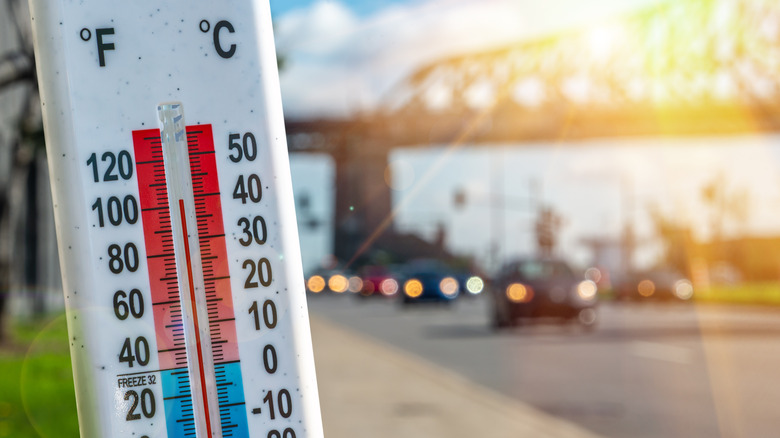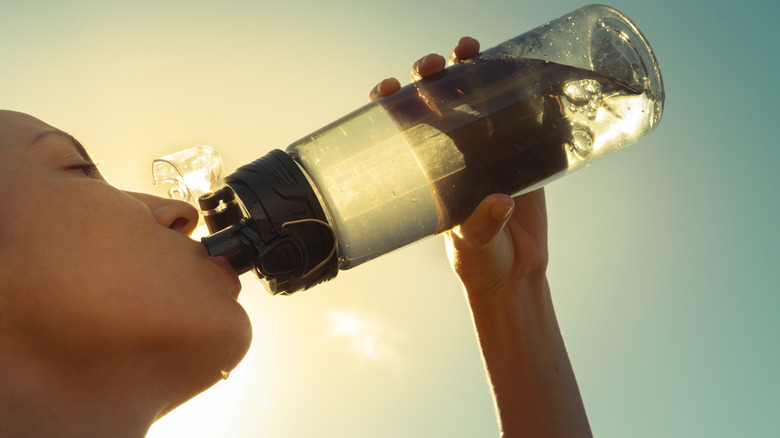Extreme Heat Waves Are Hitting The US. What Does That Mean For Your Health?
Summer might mean spending more time outside, but high temperatures and humidity can sneak up on you. In fact, heatwaves are becoming more prevalent, with the Environmental Protection Agency reporting that the average number of heatwaves per year rose from two in the 1960s to six in the 2010s.
The American Red Cross warns that extreme heat is the most dangerous type of severe weather in the U.S., and being exposed to high temperatures can lead to heat-related conditions that require immediate attention. Heat stroke is one of the most serious heat-related conditions. With a heat stroke, your body becomes overheated while it is hot outside. Your core body temperature reaches 104 degrees Fahrenheit or higher, which can lead to brain, heart, kidney, and muscle damage (via Mayo Clinic).
Symptoms of heat stroke include confusion, slurred speech, delirium, seizures, and agitation. Your skin may turn red, your pulse may race, and your breathing could also become shallow. The longer heat stroke goes untreated, the more damage can be done — including death, in some cases — which is why it should be treated immediately.
Heat exhaustion can lead to heat stroke
Heat exhaustion is another condition related to extreme heat. Like heat stroke, heat exhaustion occurs when your body overheats. If you are outside and your heart begins to beat fast while you are sweating profusely, you could be suffering from heat exhaustion. Your skin may be pale, cool, and covered with goosebumps. In addition, you may experience fatigue, dizziness, nausea, muscle cramps, and a headache. It's important to treat heat exhaustion quickly because it could lead to heatstroke, per WebMD.
If you think you or someone you know is experiencing heatstroke, the Mayo Clinic suggests calling 911 immediately. Move indoors or out of the sun, remove unnecessary clothing, and cool down the best way you can. This could mean taking a cool (not cold) shower, getting in a tub with cool water, spraying with a garden hose, or placing ice packs or cool towels on the head, neck, armpit, and groin.
If you suspect heat exhaustion, you should sip water. Follow the protocol for cooling down if you suspect a heat stroke. If symptoms don't improve after 15 minutes WebMD recommends calling 911, because heat exhaustion could develop into heatstroke. The Centers for Disease Control and Prevention also recommends seeking medical help right away if you are throwing up.


